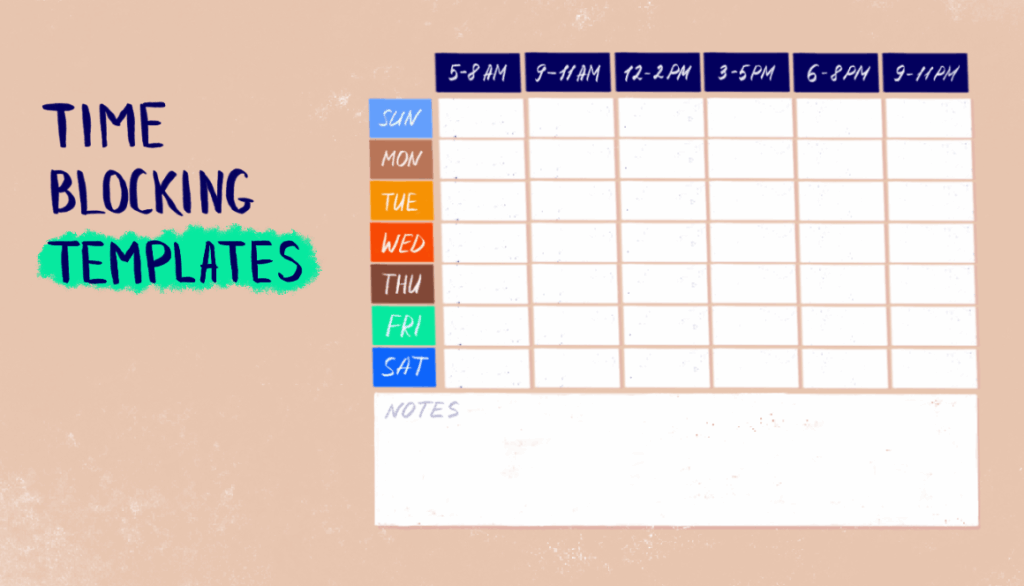Acquiring and mastering time management skills is relevant in every field of endeavour. Grasping the needed skills to manage your time as a professional will set you apart from others. When your time is effectively managed, you get more organized, stress level is reduced and you achieve peak performance and productivity. Effective time management is also one sure way to beat procrastination. Check this article on seven simple ways to beat procrastination and get things done.
In this article, we discuss five essential time management skills that act as catalysts for the success of the busy professional. Come along let’s dive in.
1. Prioritization

When we prioritize, the most important tasks and assignments are identified, and they become the basis of our attention. As a busy professional, you may have a long list of responsibilities. This means we will have to determine which of these responsibilities are urgent, important, and those that don’t deserve our attention. The Eisenhower Matrix acts as a guide to help us prioritize. In respective of activities, the four quadrants in this Matrix are:
- Urgent and important
- Urgent but not important
- Important but not urgent
- Neither urgent nor important.
As a matter of priority, our time and resources are to be assigned to urgent and important tasks.
2. Goal Setting

One fundamental aspect of effective time management is to set clear, concise and achievable goals. At the professional level, we can set short-term, medium-term and long-term goals. These types of goals bring our work into proper perspective and help us use resources more efficiently. By categorizing goals into these forms, we gain direction and purpose. The long-term company goals can be achieved by breaking them down into manageable chunks. This is where short and medium-term goals come in handy.
>>> Click to learn the six steps to crafting a career development plan through goal setting
3. Time Blocking

By time blocking, you divide the day into blocks of time, with each block dedicated to achieving specific tasks or group of tasks. By doing this, your day is well structured and there are minimal distractions. You can block time in the area of meetings, email checking, and client prospecting. In a nutshell, time blocking allows you to get dedicated to specific activities, thereby increasing efficiency and reducing the tendency to multitask.
4. Delegation

The tendency to always be in charge makes many professionals guilty for not delegating. Do not behave like a Superman, thinking you can do everything by yourself. You will surely get exhausted along the way. A key success point in delegation is to know your team members and which tasks they are able to handle without much supervision. Also when you are delegating, clearly communicate your expectations and provide all the requisite resources and support. You have to remember that delegation is not relegation. Since you take the ultimate responsibility for those tasks, make sure you show a high interest in the task that has been assigned, and make an input when necessary. In this way, critical issues can be addressed before final delivery of expected outcome.
Do you want to completely change your life? What if it only took 31 days of small, intentional steps? My guide, 31 Daily Practices to Transform Your Life makes this possible.
>>> Get 31 Daily Practices to Transform Your Life: Your Secret Hack to Getting Better Every Day
5. Time Awareness

As professionals, we can become so engrossed in some activities we deem important that we lose track of other equally pressing issues. We must however remember that being aware of how we spend and allocate our time is important for effective time management. The starting point to becoming time-aware is to do a kind of daily time audit for a week to determine where our time goes. Other tools we can use are time logs and time-tracking apps to identify time wasters and be aware of habits that are unproductive. By becoming time-aware, we are able to make informed decisions on how our time should be allocated. This self-awareness will help you make informed decisions on how to better allocate your time
Wrapping Up
As a professional, there is a massive demand for your time, with many competing interests. The ability to schedule and effectively manage time will ensure a healthy work-life balance. By developing and practicing these five time management skills, you will experience increased productivity, reduced stress, and be more organized.









